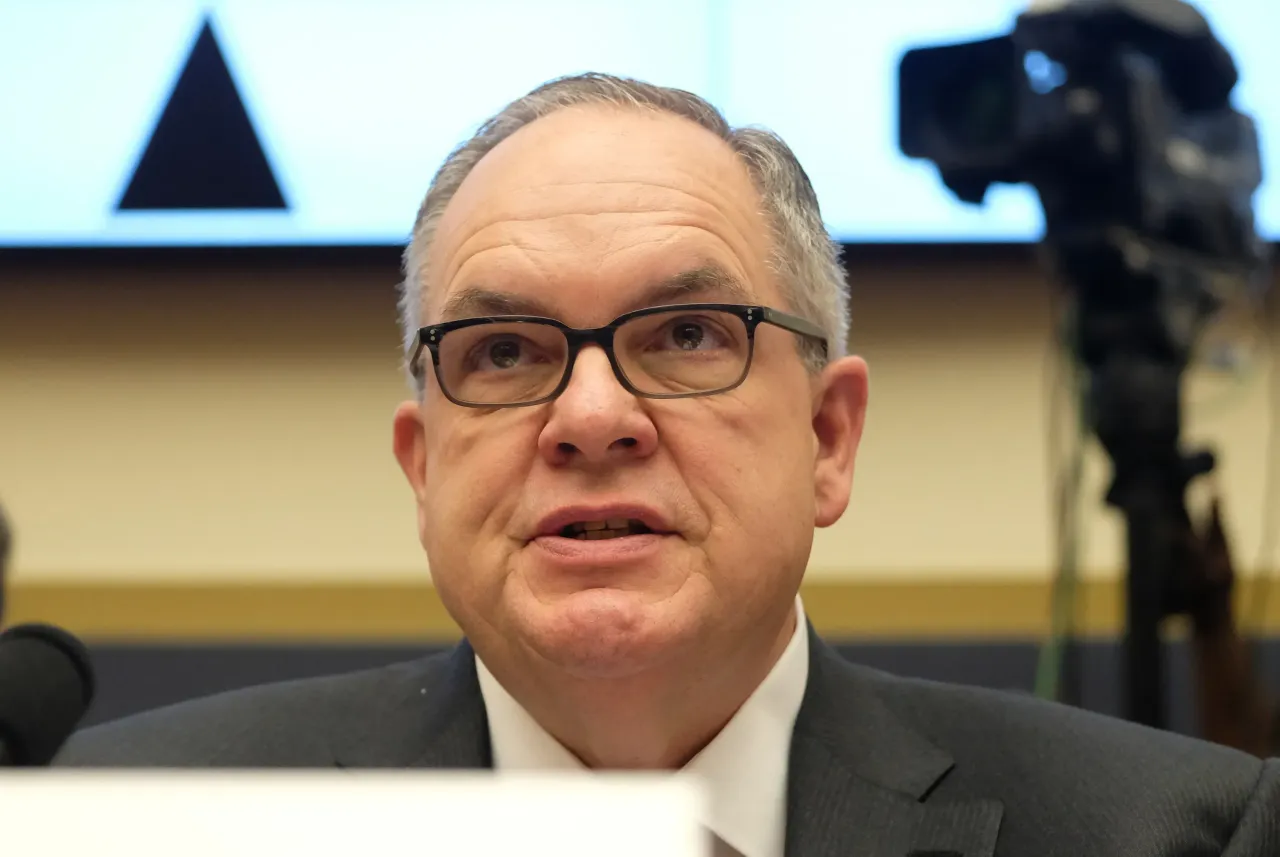Advertisement|Remove ads.
State Street Chief O’Hanley Dubs Trump’s Immigration Policies ‘Anti-Growth’

- “It’s not just illegal immigration that’s being stopped, but legal immigration, including the kind of immigration that’s really driven a lot of growth, a lot of prosperity, a lot of company formation in the U.S.” — Ron O’Hanley.
- A Federal Reserve Bank of Richmond survey found that most H-1B positions are in computer science and engineering.
- O’Hanely says the current immigration policy is not ‘coherent.’
State Street CEO Ron O’Hanley labeled President Donald Trump’s immigration policy “anti-growth,” in a rare critique offered by a top Wall Street executive on the U.S. crackdown on immigration.
The comments from the top boss of one of the world’s biggest asset managers come after the Trump administration imposed a $100,000 fee for a large number of H-1B visa issuances, a tool used by U.S. firms to bring college-educated, skilled foreign workers into the country. Every year, 85,000 new visas are issued to private-sector employers, and since the number of applications far exceed the cap, they are awarded by lottery.
What Did The State Street Chief Say?
According to a Bloomberg News report, O’Hanley said to the audience at the Hong Kong Monetary Authority’s Global Financial Leaders’ Investment Summit, the biggest challenge for the world’s biggest economy will be the future of the country’s immigration policies.
“It’s not just illegal immigration that’s being stopped, but legal immigration, including the kind of immigration that’s really driven a lot of growth, a lot of prosperity, a lot of company formation in the U.S.,” O’Hanley reportedly said. “So to me, the biggest challenge of all that we’re seeing in the U.S. will be what happens in immigration and what kind of policy emerges from that. Right now, there’s not a clear and coherent policy.”
“If you look at the U.S. over really almost its entire lifetime, it’s been fueled by immigration,” O’Hanley noted. In “modern times, the U.S. demography would look a lot like European demography, but for the fact of immigration. And, we don’t have that same level of immigration any longer.”
A Federal Reserve Bank of Richmond survey found that most H-1B positions are in computer science and engineering, suggesting the number of skilled workers in this highly competitive sector could shrink under the new policy amid the country’s push into artificial intelligence.
Retail sentiment on Stocktwits about the SPDR S&P 500 ETF Trust (SPY) and the Invesco QQQ Trust Series 1, which tracks the top 100 Nasdaq firms, was in the ‘extremely bearish’ territory at the time of writing.

O’Hanley also reportedly said it’s still difficult to question whether the US is still a great place to invest given the performance and profit level of U.S. companies, but that “it’s a different moment right now” with a reordering of trade and capital flows and a fiscal situation in many places of the world.
Also See: Grab Stock Sees Surge In Retail Buzz After Raising Earnings Forecast
For updates and corrections, email newsroom[at]stocktwits[dot]com.













/filters:format(webp)https://news.stocktwits-cdn.com/large_Roku_logo_jpg_1323183cec.webp)
/filters:format(webp)https://news.stocktwits-cdn.com/jaiveer_jpg_280ad67f36.webp)
/filters:format(webp)https://news.stocktwits-cdn.com/large_Novo_Nordisk_jpg_96dd19f953.webp)
/filters:format(webp)https://st-everywhere-cms-prod.s3.us-east-1.amazonaws.com/unnamed_jpg_9dff551b50.webp)
/filters:format(webp)https://news.stocktwits-cdn.com/Aashika_Suresh_Profile_Picture_jpg_2acd6f446c.webp)
/filters:format(webp)https://news.stocktwits-cdn.com/large_Stocks_jpg_a3427ddfd2.webp)
/filters:format(webp)https://news.stocktwits-cdn.com/large_Lockheed_Martin_jpg_8c751d0020.webp)
/filters:format(webp)https://news.stocktwits-cdn.com/vivekkrishnanphotography_58_jpg_0e45f66a62.webp)
/filters:format(webp)https://news.stocktwits-cdn.com/Getty_Images_2239867148_jpg_8df22810c1.webp)
/filters:format(webp)https://news.stocktwits-cdn.com/shivani_photo_jpg_dd6e01afa4.webp)